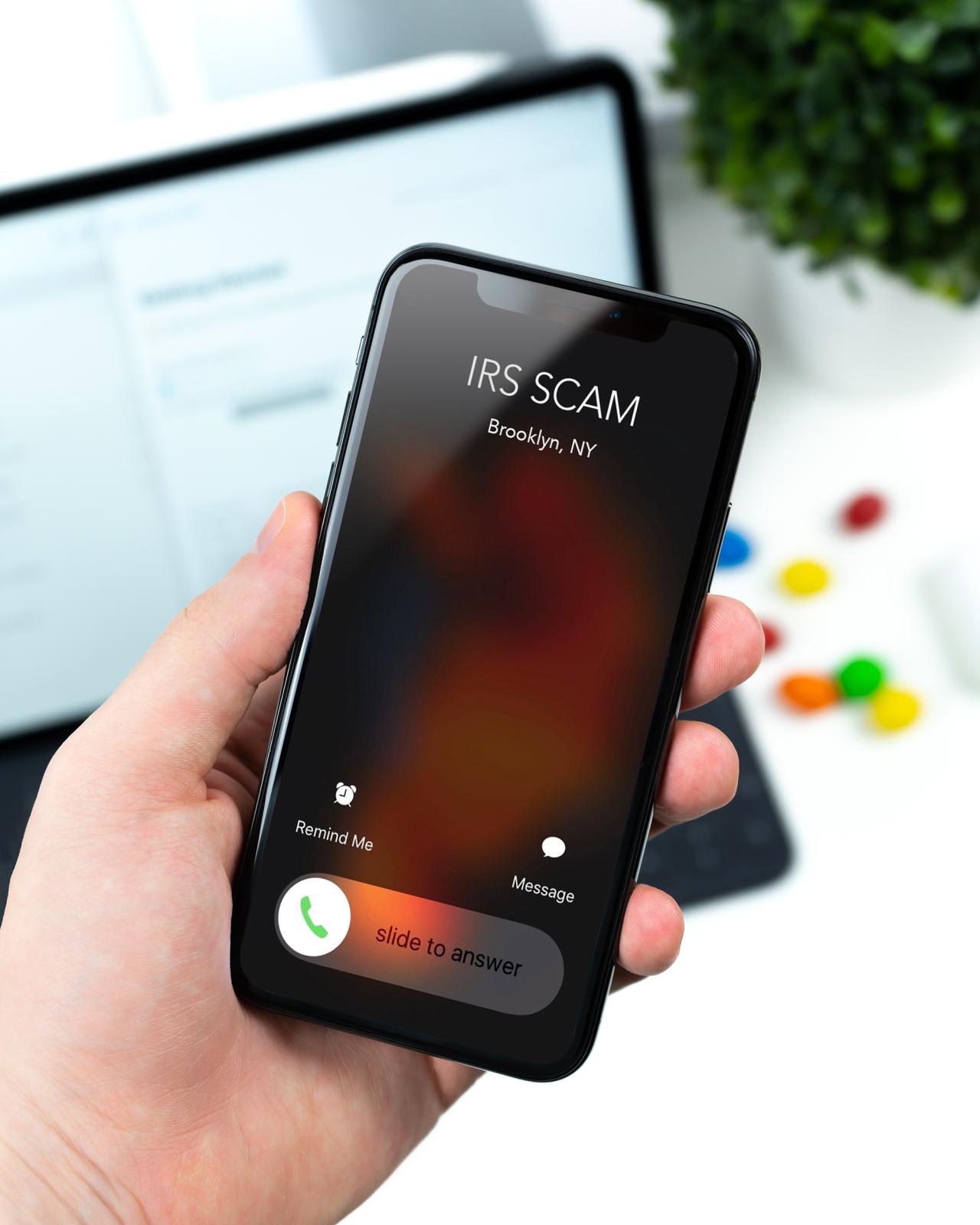IRS phone scam
Be alert!

In an increasingly common scam, a scammer uses the IRS name (and sometimes phone number) to steal your money and personal information over the phone. Scammers also use similar tactics via email.
How it works:
A caller impersonates an IRS official and claims that you owe back taxes. The caller threatens that you will be arrested or jailed, or that your driver’s license will be revoked, unless you pay the taxes immediately. The scammer may use caller-ID spoofing so that your caller ID box displays “Internal Revenue Service” or the agency’s phone number.
The scammer will most likely tell you to either wire money or buy a prepaid debit card and call back with the serial number.
The scammer may also:
- threaten arrest to intimidate you
- threaten you with deportation if you are an immigrant
- know your personal information, like your name and the last four digits of your Social Security number
- call you repeatedly and leave “urgent” messages that become increasingly threatening and insulting
- follow up with calls claiming to be local law enforcement or the Department of Motor Vehicles
The IRS will never:
- call to demand immediate payment. The IRS notifies you in writing of taxes and penalties you may owe. In addition, the IRS allows you to protest or appeal any owed amount
- ask for payment information over the phone
- threaten arrest or deportation
If a scammer calls you:
- Do not engage with the person. Instead, hang up the phone.
- Do not call the scammer back.
- Do not provide any personal or financial information.
- Do not wire money or provide the serial number of a prepaid debit card.
- Do call the IRS at their published number directly if you think you owe taxes.
- Do report the call to the U.S. Treasury Inspector General for Tax Administration.
In an alternative scam, a caller may claim that the IRS owes you a refund from the IRS. They may try to trick you into revealing personal identifying and financial information. Then they can use your information to steal your identity.
Office of the New York State Attorney General
File a consumer complaint
1-800-771-7755
Internal Revenue Service
Irs.gov
1-800-829-1040
Treasury Inspector General for the Tax Administration
Tigta.gov
1-800-366-4484
